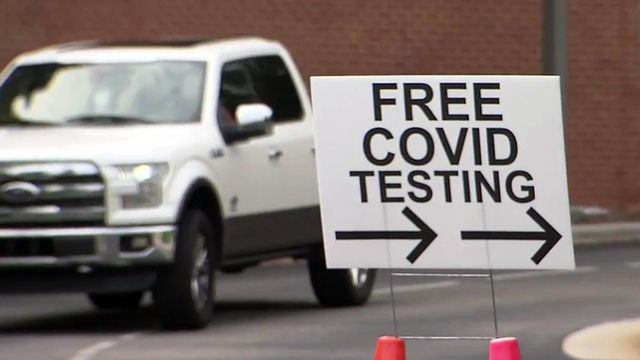Coronavirus hitting harder in communities of color across NC
Nearly 7,300 new coronavirus infections are reported a day in North Carolina, which is up 40 percent from a month ago. But the cases are hitting some groups harder than others.
Posted — UpdatedAccording to data from the state Department of Health and Human Services, Black and Latino residents are disproportionately affected by the virus.
Latino residents, for example, have experienced 15,586 cases per capita, which is 82 percent more than the 8,553 cases per capita among white residents, according to DHHS data. Cases per capita among Black and Native American residents are 11 percent and 10 percent higher, respectively, than the rate for whites.
"I think it's a combination of the multi-generational households [and] a lack of access to health care prior to the pandemic," said Donald Hughes, program coordinator for We Are Ready for Life, a Durham nonprofit focused on improving the quality of life and economic opportunities in underserved communities.
Breaking down misinformation about the virus and available vaccines is crucial to ensuring disparities don’t exist in communities of color, he said.
When it comes to virus-related deaths, data show similar racial disparities.
Black people make up 23 percent of North Carolina's population but account for 25 percent of deaths. Meanwhile, white people make up 72 percent of the population but account for only 66 percent of deaths.
"One of the hardest parts of the job when we're out trying to get folks vaccinated is hearing the stories of loved ones that have been impacted or contracted COVID-19 and either are having long-haul symptoms or hearing the stories of their family members who unfortunately did not survive," Hughes said.
Related Topics
• Credits
Copyright 2024 by Capitol Broadcasting Company. All rights reserved. This material may not be published, broadcast, rewritten or redistributed.






